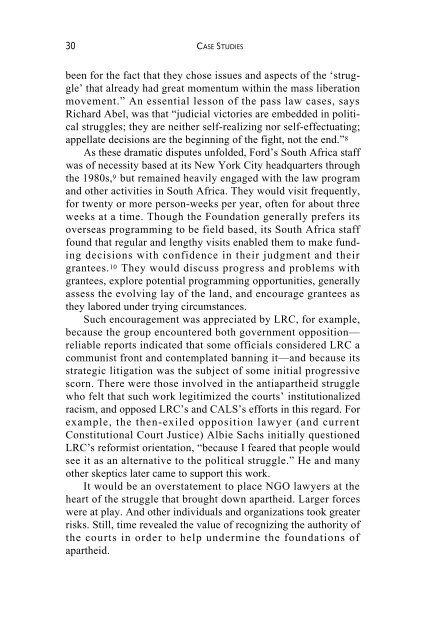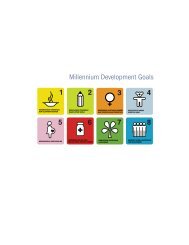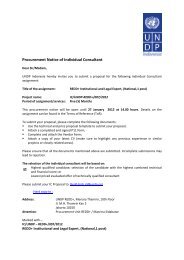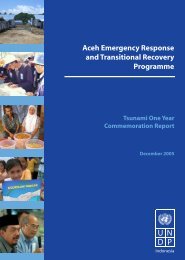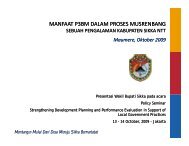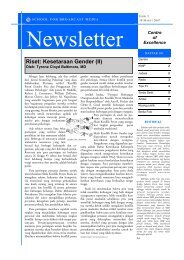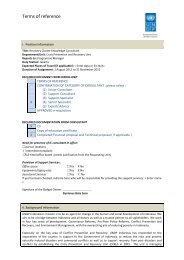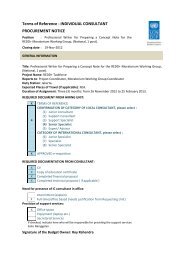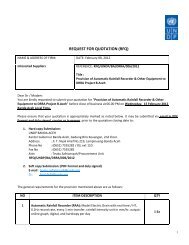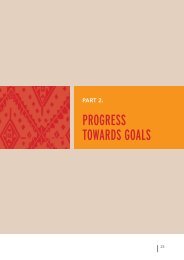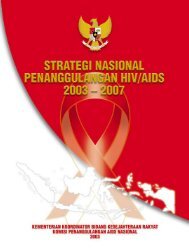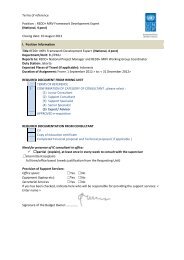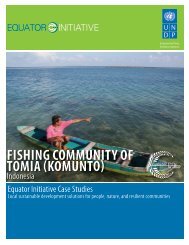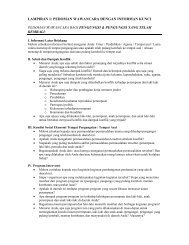- Page 1 and 2: MANYROADSTOThe LawRelated Work ofFo
- Page 3 and 4: MA N Y ROA D STO JU S T I C EThe La
- Page 6: v iCO N T E N T S5 Contributing to
- Page 9 and 10: AC K N OW L E D G M E N T SThe GLPL
- Page 11 and 12: I n t ro d u c t i o n :A Guide to
- Page 13 and 14: A GU I D E TO TH I S VO L U M E 3in
- Page 15 and 16: A GU I D ETOTH I SVO L U M E 5inter
- Page 17 and 18: A GU I D E TO TH I S VO L U M E 7ta
- Page 19 and 20: A GU I D E TO TH I S VO L U M E 9ju
- Page 21 and 22: A GU I D E TO TH I S VO L U M E 1 1
- Page 23 and 24: A GU I D ETOTH I SVO L U M E 1 3C h
- Page 25 and 26: A GU I D E TO TH I S VO L U M E 1 5
- Page 27 and 28: 1Battling A p a rt h e i d ,Buildin
- Page 29 and 30: SO U T H AF R I CA 2 1lation the ri
- Page 31 and 32: SO U T H AF R I CA 2 3gressive Sout
- Page 33 and 34: SO U T H AF R I CA 2 5dubbed “apa
- Page 35 and 36: SO U T H AF R I CA 2 7“judiciary
- Page 37: SO U T H AF R I CA 2 9value] becaus
- Page 41 and 42: SO U T HAF R I CA 3 3of publication
- Page 43 and 44: SO U T H AF R I CA 3 5constitutiona
- Page 45 and 46: SO U T H AF R I CA 3 7In contrast t
- Page 47 and 48: SO U T H AF R I CA 3 9legal skills.
- Page 49 and 50: SO U T H AF R I CA 4 1grams off the
- Page 51 and 52: SO U T H AF R I CA 4 3Lessons and I
- Page 53 and 54: SO U T H AF R I CA 4 5courts and in
- Page 55 and 56: SO U T H AF R I CA 4 7M o r e o v e
- Page 57 and 58: SO U T HAF R I CA 4 91 2 . Penelope
- Page 59 and 60: SO U T H AF R I CA 5 1Bongani Khuma
- Page 61 and 62: SO U T H AF R I CA 5 3Michael Savag
- Page 63 and 64: 2F rom Dictatorship to Democracy:L
- Page 65 and 66: SO U T H AM E R I CA 5 7Villanueva,
- Page 67 and 68: SO U T H AM E R I CA 5 9of these co
- Page 69 and 70: SO U T H AM E R I CA 6 1outside wor
- Page 71 and 72: SO U T H AM E R I CA 6 3and other d
- Page 73 and 74: SO U T H AM E R I CA 6 5omissions.
- Page 75 and 76: SO U T H AM E R I CA 6 7civilian go
- Page 77 and 78: SO U T HAM E R I CA 6 9police viole
- Page 79 and 80: SO U T H AM E R I CA 7 1a d v o c a
- Page 81 and 82: SO U T H AM E R I CA 7 3Law School
- Page 83 and 84: SO U T H AM E R I CA 7 5marily deal
- Page 85 and 86: SO U T H AM E R I CA 7 7The network
- Page 87 and 88: SO U T H AM E R I CA 7 9experiences
- Page 89 and 90:
SO U T H AM E R I CA 8 1Following a
- Page 91 and 92:
SO U T HAM E R I CA 8 3benefited fr
- Page 93 and 94:
SO U T H AM E R I CA 8 5Ernesto de
- Page 95 and 96:
SO U T H AM E R I CA 8 7Alex Wi l d
- Page 97 and 98:
9 0 CA S E ST U D I E Sunderreprese
- Page 99 and 100:
9 2 CA S E ST U D I E Sciation for
- Page 101 and 102:
9 4 CA S E ST U D I E Sexplore new
- Page 103 and 104:
9 6 CA S E ST U D I E Sage for thei
- Page 105 and 106:
9 8 CA S E ST U D I E Sdespite the
- Page 107 and 108:
1 0 0 CA S E ST U D I E SR o e and
- Page 109 and 110:
1 0 2 CA S E ST U D I E Srights ins
- Page 111 and 112:
1 0 4 CA S E ST U D I E Swas able t
- Page 113 and 114:
1 0 6 CA S E ST U D I E Sincluded p
- Page 115 and 116:
1 0 8 CA S E ST U D I E Slic educat
- Page 117 and 118:
1 1 0 CA S E ST U D I E Spublic int
- Page 119 and 120:
1 1 2 CA S E ST U D I E SPerhaps th
- Page 121 and 122:
1 1 4 CA S E ST U D I E Sacademics,
- Page 123 and 124:
1 1 6 CA S E ST U D I E SMedical As
- Page 125 and 126:
1 1 8 CA S E ST U D I E Sgroups. On
- Page 127 and 128:
1 2 0 CA S E ST U D I E S1 . In 197
- Page 129 and 130:
1 2 2 CA S E ST U D I E SJack Green
- Page 131 and 132:
1 2 4 CA S E ST U D I E SGeraldine
- Page 133 and 134:
4F rom the Village to theU n i ve r
- Page 135 and 136:
BA N G L A D E S H 1 2 9To compleme
- Page 137 and 138:
BA N G L A D E S H 1 3 1ened in the
- Page 139 and 140:
BA N G L A D E S H 1 3 3broad-based
- Page 141 and 142:
BA N G L A D E S H 1 3 5ductive eff
- Page 143 and 144:
BA N G L A D E S H 1 3 7areas. The
- Page 145 and 146:
BA N G L A D E S H 1 3 9While it is
- Page 147 and 148:
BA N G L A D E S H 1 4 1e q u i t y
- Page 149 and 150:
BA N G L A D E S H 1 4 3“the poss
- Page 151 and 152:
BA N G L A D E S H 1 4 5Groarke (su
- Page 153 and 154:
BA N G L A D E S H 1 4 7starting to
- Page 155 and 156:
BA N G L A D E S H 1 4 9of Banchte
- Page 157 and 158:
BA N G L A D E S H 1 5 1involve sup
- Page 159 and 160:
BA N G L A D E S H 1 5 34 . In its
- Page 161 and 162:
BA N G L A D E S H 1 5 5Angela Gome
- Page 163 and 164:
BA N G L A D E S H 1 5 7Ghazi Shafi
- Page 165 and 166:
5Contributing to Legal Reformin Chi
- Page 167 and 168:
CH I N A 1 6 1more recent major cha
- Page 169 and 170:
CH I N A 1 6 3institution. “Just
- Page 171 and 172:
CH I N A 1 6 5gence of new social o
- Page 173 and 174:
CH I N A 1 6 7zens, as well as to r
- Page 175 and 176:
CH I N A 1 6 9project similar to CL
- Page 177 and 178:
CH I N A 1 7 1for more research on
- Page 179 and 180:
CH I N A 1 7 3criminal procedure la
- Page 181 and 182:
CH I N A 1 7 5tive law. Because thi
- Page 183 and 184:
CH I N A 1 7 7sentative of the judg
- Page 185 and 186:
CH I N A 1 7 9the judge maintained
- Page 187 and 188:
CH I N A 1 8 1the legal aid system
- Page 189 and 190:
CH I N A 1 8 3Another new organizat
- Page 191 and 192:
CH I N A 1 8 5wider twenty-year Chi
- Page 193 and 194:
CH I N A 1 8 7basic judicial values
- Page 195 and 196:
CH I N A 1 8 91 0 . Initiatives by
- Page 197 and 198:
CH I N A 1 9 1Fang Shi-rongP r o f
- Page 199 and 200:
CH I N A 1 9 3Li HanchangAssociate
- Page 201 and 202:
CH I N A 1 9 5Wu HandongProfessor a
- Page 203 and 204:
6P a rt i c i p a t o ry Justice in
- Page 205 and 206:
PH I L I P P I N E S 1 9 9• Indig
- Page 207 and 208:
PH I L I P P I N E S 2 0 1which pub
- Page 209 and 210:
PH I L I P P I N E S 2 0 3portfolio
- Page 211 and 212:
PH I L I P P I N E S 2 0 5get start
- Page 213 and 214:
PH I L I P P I N E S 2 0 7Other att
- Page 215 and 216:
PH I L I P P I N E S 2 0 9The Legal
- Page 217 and 218:
PH I L I P P I N E S 2 1 1ly a Depa
- Page 219 and 220:
PH I L I P P I N E S 2 1 3The issue
- Page 221 and 222:
PH I L I P P I N E S 2 1 5cials who
- Page 223 and 224:
PH I L I P P I N E S 2 1 7Kalikasan
- Page 225 and 226:
PH I L I P P I N E S 2 1 9munities,
- Page 227 and 228:
PH I L I P P I N E S 2 2 1p o w e r
- Page 229 and 230:
PH I L I P P I N E S 2 2 3a r y, by
- Page 231 and 232:
PH I L I P P I N E S 2 2 5various t
- Page 233 and 234:
PH I L I P P I N E S 2 2 7Ted Bonpi
- Page 235 and 236:
PH I L I P P I N E S 2 2 9Marie Vic
- Page 237 and 238:
PH I L I P P I N E S 2 3 1Rodrigo S
- Page 239 and 240:
2 3 4 CA S E ST U D I E Swhere in t
- Page 241 and 242:
2 3 6 CA S E ST U D I E Smany polit
- Page 243 and 244:
2 3 8 CA S E ST U D I E Sproblems i
- Page 245 and 246:
2 4 0 CA S E ST U D I E Seducation
- Page 247 and 248:
2 4 2 CA S E ST U D I E Scepts and
- Page 249 and 250:
2 4 4 CA S E ST U D I E SMartin Pal
- Page 251 and 252:
2 4 6 CA S E ST U D I E SThe Founda
- Page 253 and 254:
2 4 8 CA S E ST U D I E Sculty soug
- Page 255 and 256:
2 5 0 CA S E ST U D I E Sconflicts
- Page 257 and 258:
2 5 2 CA S E ST U D I E Sand quickl
- Page 259 and 260:
2 5 4 CA S E ST U D I E Senable lon
- Page 261 and 262:
2 5 6 CA S E ST U D I E Swas focuse
- Page 263 and 264:
2 5 8 CA S E ST U D I E SC o n c l
- Page 265 and 266:
2 6 0 CA S EST U D I E S6 . The PIL
- Page 267 and 268:
2 6 2 CA S E ST U D I E SStefan Kri
- Page 269 and 270:
2 6 4 CA S E ST U D I E SEleonora Z
- Page 271 and 272:
8U n i versity Legal Aid Clinics:A
- Page 273 and 274:
UN I V E R S I T Y LE G A L AI D CL
- Page 275 and 276:
UN I V E R S I T Y LE G A L AI D CL
- Page 277 and 278:
UN I V E R S I T Y LE G A L AI D CL
- Page 279 and 280:
UN I V E R S I T Y LE G A L AI D CL
- Page 281 and 282:
UN I V E R S I T Y LE G A L AI D CL
- Page 283 and 284:
UN I V E R S I T Y LE G A L AI D CL
- Page 285 and 286:
UN I V E R S I T Y LE G A L AI D CL
- Page 287 and 288:
9Public Interest Litigation:An Inte
- Page 289 and 290:
PU B L I C IN T E R E S T LI T I G
- Page 291 and 292:
PU B L I CIN T E R E S TLI T I G AT
- Page 293 and 294:
PU B L I C IN T E R E S T LI T I G
- Page 295 and 296:
PU B L I C IN T E R E S T LI T I G
- Page 297 and 298:
PU B L I C IN T E R E S T LI T I G
- Page 299 and 300:
PU B L I C IN T E R E S T LI T I G
- Page 301 and 302:
1 0N o n l aw yers as Legal Resourc
- Page 303 and 304:
NO N L AW Y E R S A S LE G A L RE S
- Page 305 and 306:
NO N L AW Y E R S A S LE G A L RE S
- Page 307 and 308:
NO N L AW Y E R SA S LE G A LRE S O
- Page 309 and 310:
NO N L AW Y E R SA S LE G A L RE S
- Page 311 and 312:
NO N L AW Y E R S A S LE G A L RE S
- Page 313 and 314:
NO N L AW Y E R S A S LE G A L RE S
- Page 315 and 316:
NO N L AW Y E R S A S LE G A LRE S
- Page 317 and 318:
NO N L AW Y E R S A S LE G A L RE S
- Page 319 and 320:
3 1 6 TH E M AT I CPE R S P E C T I
- Page 321 and 322:
3 1 8 TH E M AT I C PE R S P E C T
- Page 323 and 324:
3 2 0 TH E M AT I CPE R S P E C T I
- Page 325 and 326:
3 2 2 TH E M AT I C PE R S P E C T
- Page 327 and 328:
3 2 4 TH E M AT I CPE R S P E C T I
- Page 329 and 330:
3 2 6 TH E M AT I C PE R S P E C T
- Page 331 and 332:
3 2 8 TH E M AT I C PE R S P E C T
- Page 333 and 334:
3 3 0 TH E M AT I C PE R S P E C T
- Page 335 and 336:
3 3 2 TH E M AT I C PE R S P E C T
- Page 337 and 338:
3 3 4 TH E M AT I C PE R S P E C T
- Page 339 and 340:
3 3 6 TH E M AT I C PE R S P E C T
- Page 341 and 342:
AC RO N Y M S/ AB B R E V I AT I O
- Page 343 and 344:
AC RO N Y M S 3 4 1L A CL AWL C A C
- Page 345 and 346:
AB O U T T H E AU T H O R SHugo Fr
- Page 347 and 348:
AB O U TT H E AU T H O R S 3 4 5A u
- Page 349 and 350:
348 INDEX69-73; preview, chapter, 9
- Page 351 and 352:
350 INDEXcone of South America, 78-
- Page 353 and 354:
352 INDEXof law-related, 322; summa
- Page 355 and 356:
354 INDEXInter-American Legal Servi
- Page 357 and 358:
356 INDEXNagaraj, V., 271, 273, 277
- Page 359 and 360:
358 INDEXefforts, 66-69; Philippine
- Page 361 and 362:
360 INDEXTadiar, Alfredo, 201Tangga


